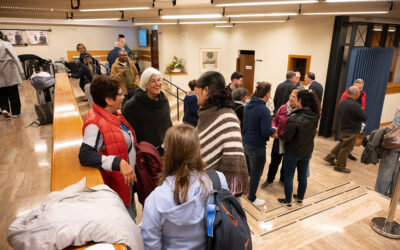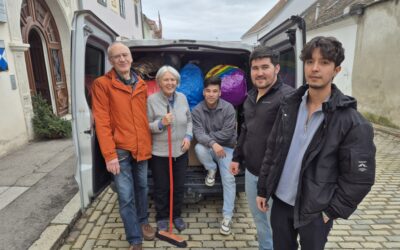How are we to educate in an age that is marked by growing disorders, religious extremism, a social, economic and cultural crisis and uncertainty of the future generations?
How are we to educate in an environment where any hope of being able to educate a human being seems to have been lost, to the point that we now refer to the human person as uneducable?
How do we move out of the darkness and into the light in order to answer the challenges of the many extreme situations that are spreading across countries and entire continents?
These are some of the challenging questions that the participants of the Sixth Pedagogical Meeting (6 October 2012) sought to provide answers for. The meeting was entitled “Night and Dawn” and was held in the University of Padua’s Aula Magna. It was a mix of life and reflection, charismatic thrust and pedagocial theory. The charismatic dimension was drawn from the thought of Chiara Lubich who links this choice to the experience of Jesus living through His abandonment on the Cross, love to the maximum degree that “indicates to us the limitless degree of responsibility and intensity required for the educational endeavour” and makes us discover “the endless responsibility contained in assistance and education.”
 A first step: to try to respond to the socio-cultural unease at the “macro” level by taking charge of the unease that is found at the “micro” level, that is, in daily life. So it was for one Italian teacher in a northern suburb of Paris who chose not to apply for a transfer but to continue his efforts where he was working in a multi-cultural environment with students from economically disadvantaged backgrounds. It was often a hard commitment, which carried a cost (such as the car that had been smashed up by kicking, since it had been identified as one belonging to a teacher). But his commitment also gave hope and possibility to students who had felt rejected, instilling in them that strength that comes from knowing that someone believes in you.
A first step: to try to respond to the socio-cultural unease at the “macro” level by taking charge of the unease that is found at the “micro” level, that is, in daily life. So it was for one Italian teacher in a northern suburb of Paris who chose not to apply for a transfer but to continue his efforts where he was working in a multi-cultural environment with students from economically disadvantaged backgrounds. It was often a hard commitment, which carried a cost (such as the car that had been smashed up by kicking, since it had been identified as one belonging to a teacher). But his commitment also gave hope and possibility to students who had felt rejected, instilling in them that strength that comes from knowing that someone believes in you.
Other experiences and approaches were shared by another teacher working in one of those notorious neighbourhoods in Palermo, Italy – including Brancaccio where Fr. Puglisi had been murdered. By opting for the least this teacher was required to reinvent himself every day, to place himself in the game again with passion and professionalism, to transform unexpected events into occasions for fraternity. It was an all round commitment, with the support of the “Peace Project Network” that involves thousands of teenagers and several institutions in offering answers to the search for meaning with concrete solidarity projects and activities of all kinds,
Texts of the presentations, including those of the EdU International Commission and Prof. Tiziano Vecchiato (President of the Zancan Foundation) will be available in a few days at: www.eduforunity.org.





0 Comments